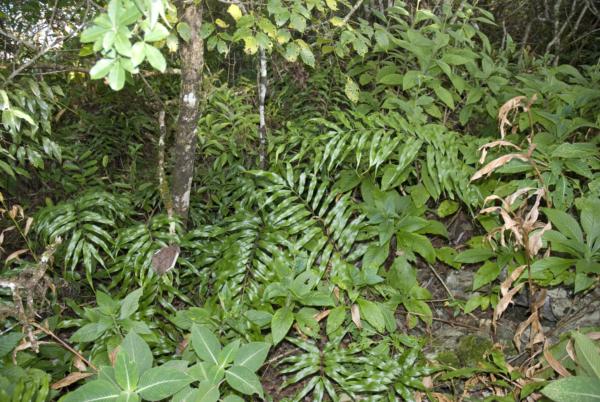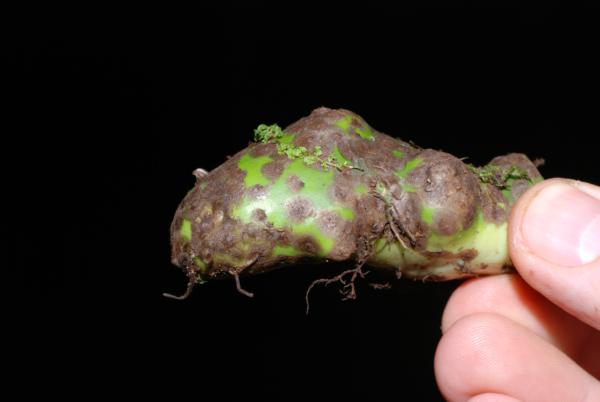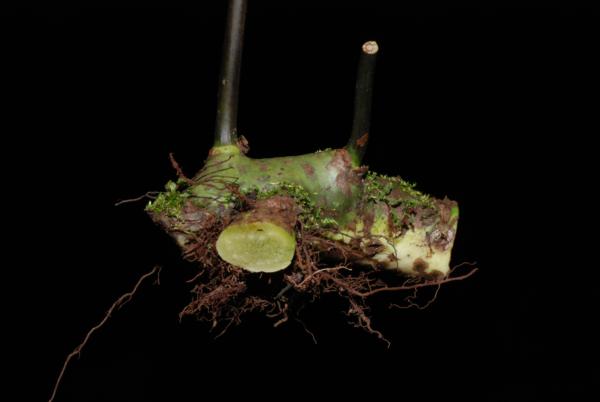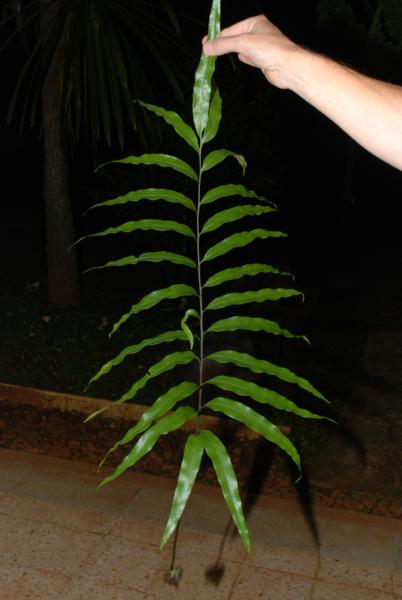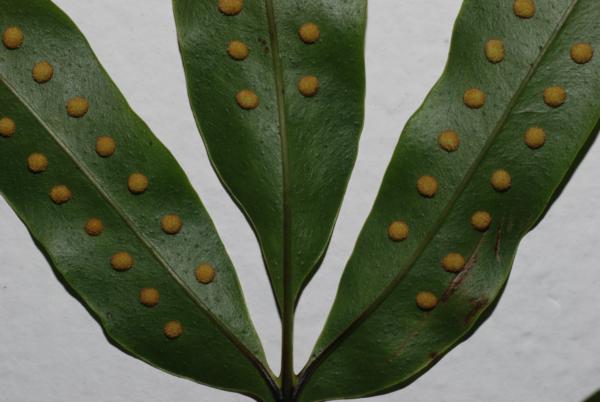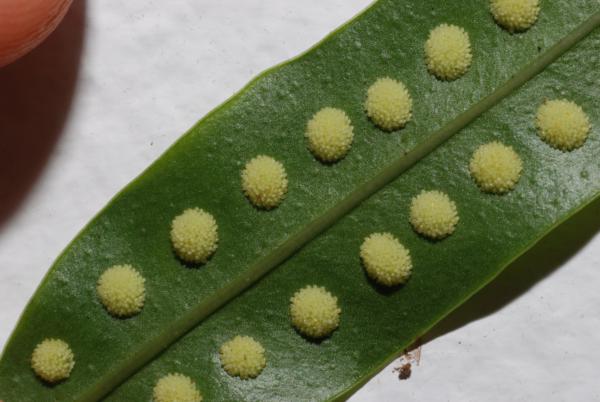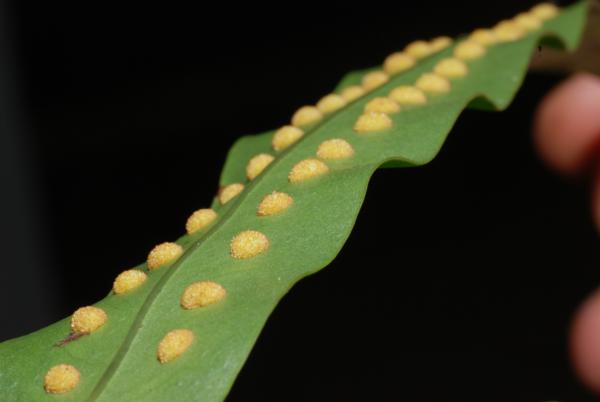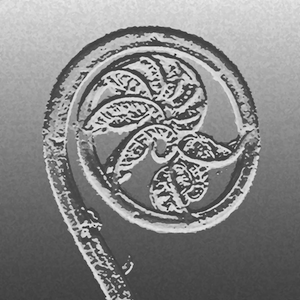
Phymatosorus cuspidatus (D.Don) Pic.Serm.
Family
Polypodiaceae
Nomenclature
Phymatosorus cuspidatus (D.Don) Pic.Serm., Webbia 31: 249. 1977; Boonkerd & Pollawatn, Pterid. Thailand: 282. 2000. – Polypodium cuspidatum D.Don, Prodr. Fl. Nepal.: 2. 1825. – Microsorum cuspidatum (D.Don) Tagawa in Hara, Fl. East. Himal.: 495. 1966; Tagawa & K.Iwats., SouthE. Asian Stud. 5: 53. 1967; Tagawa & K.Iwats., Fl. Thailand 3: 531, f. 53.3 & 53.4. 1989; Newman et al., Checkl. Vasc. Pl. Lao PDR: 30. 2007.
Polypodium lucidum Roxb., Calc. J. Nat. Hist. 4: 486. 1844. – Phymatodes lucida (Roxb.) Ching, Contr. Inst. Bot. Natl. Acad. Peiping 2: 61. 1933; Tardieu & C.Chr., Fl. Indo-Chine 7(2): 475. 1941. – Microsorum lucidum (Roxb.) Copel., Gen. Fil.: 196. 1947. – Phymatosorus lucidus (Roxb.) Pic.Serm., Webbia 28: 459. 1973.
Description
Rhizome fleshy, creeping, 6–10 mm diam., bearing a few fronds remotely, densely scaly throughout; scales large, circular, attached to rhizome slightly below the central point, 5–8 mm in both directions, the central portion with larger cells, the cells becoming smaller towards margin, dark brown but paler towards margin, entire, more or less clathrate. Stipes about 35 cm long, stramineous, scaly at base. Laminae imparipinnate, oblong to oblong-subdeltoid, acute to moderately acute at apex, truncate to broadly cuneate at base, 40–55 by 35–45 cm; lateral pinnae (8–)12–15 pairs, gradually becoming smaller from base towards apex, more or less ascending, linear-lanceolate or broader, up to 25 cm long, 1.5–3.5 cm. broad, caudately acuminate at apex, subentire, round to cuneate at base, stalked; rachis like the stipes, costa raised, stramineous, main veins distinct, other veins hardly visible, copiously anastomosing with included veinlets; herbaceous to papyraceous. Sori round, about 3 mm diam. at maturity, arranged in one row at each side of costa, medial or a little costal, nearly superficial .
Distribution in Thailand
NORTHERN: Chiang Mai, Chiang Rai; NORTH-EASTERN: Loei; EASTERN: Chaiyaphum.
Distribution in Laos
Xieng Khouang.
Wider Distribution
Himalayas, SW China, Upper Burma, Laos and N Vietnam.
Ecology
On rather dry rocks or on tree trunks in dense forests at medium altitudes.
Proposed IUCN Conservation Assessment
Least Concern (LC). This species is widespread and not under any known threat.
Voucher specimens - Thailand
Middleton et al. 4575, Chiang Rai, Summit of Doi Tung (E); Middleton et al. 4909, Chiang Mai, Doi Ang Khang (E).
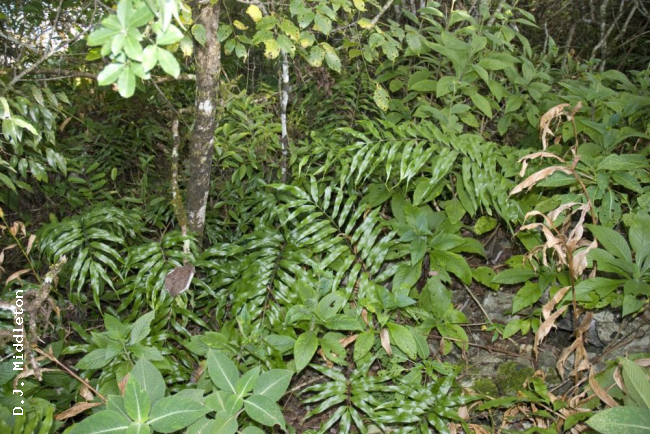
Habit on rocks
Tip of rhizome
Rhizome and stipe bases
Frond
Lower surface of frond
Sori
Sori
Site hosted by the Royal Botanic Garden Edinburgh. Content managed by Stuart Lindsay, Gardens by the Bay, Singapore and David Middleton, Singapore Botanic Gardens. Last updated 24 January 2012
